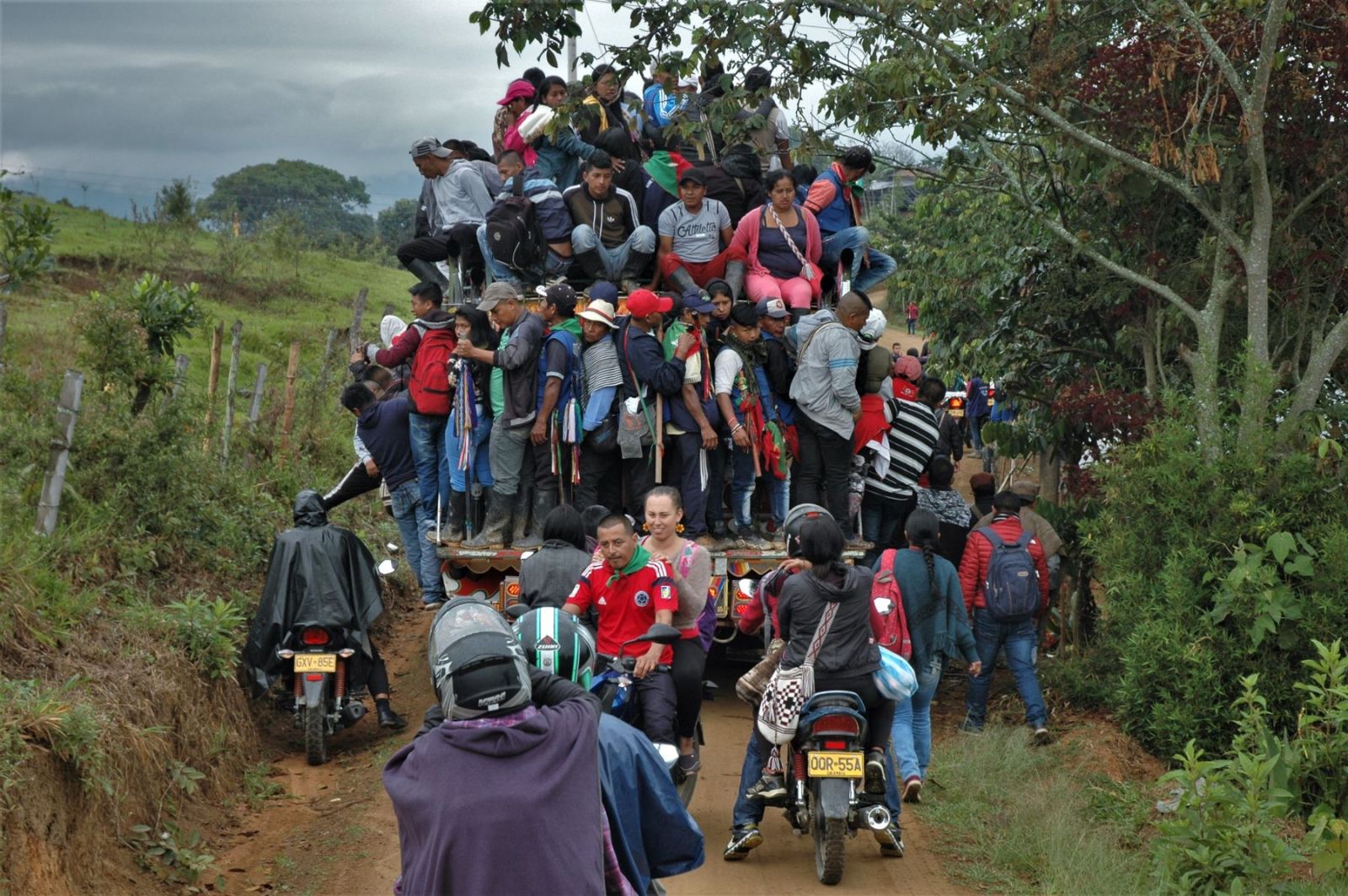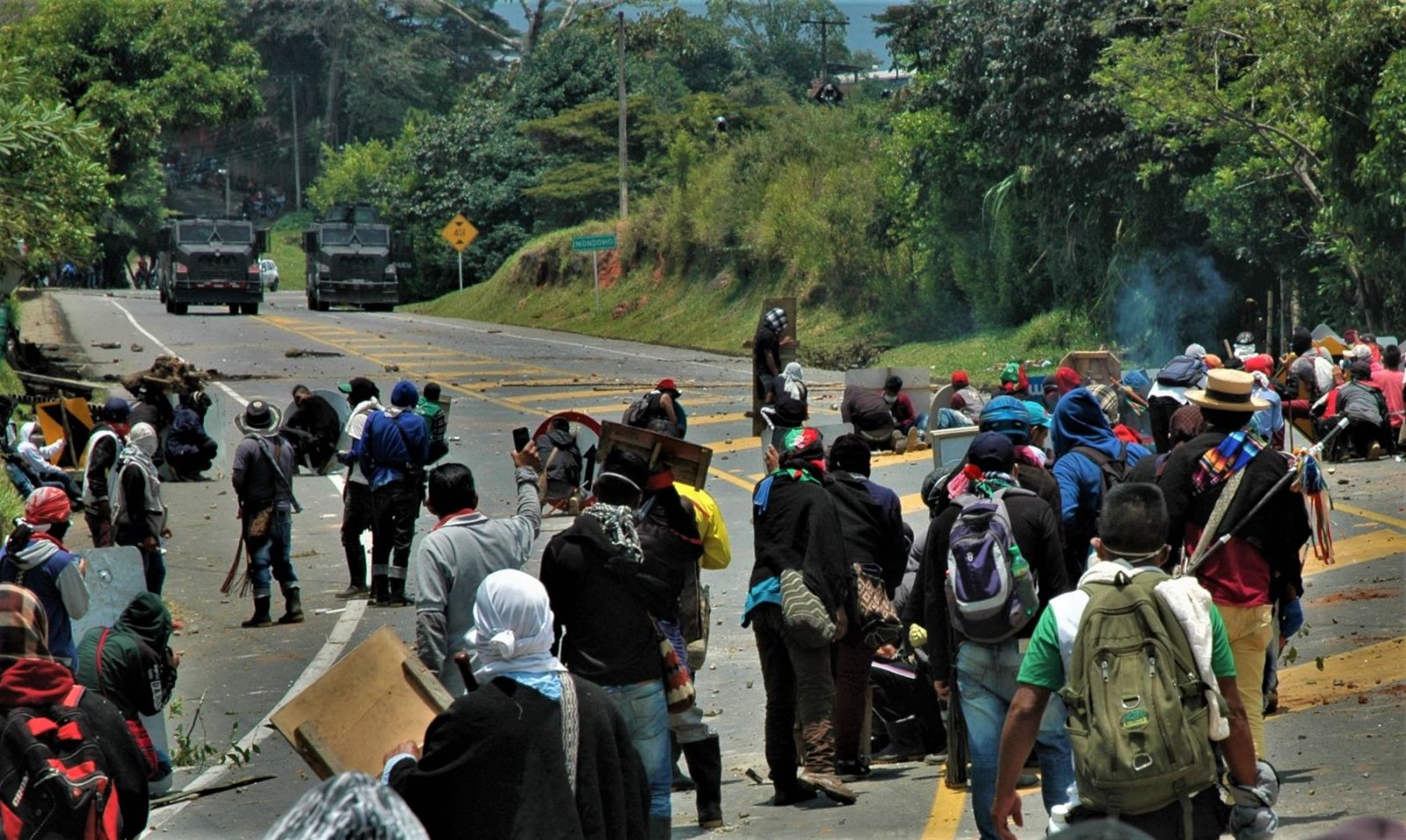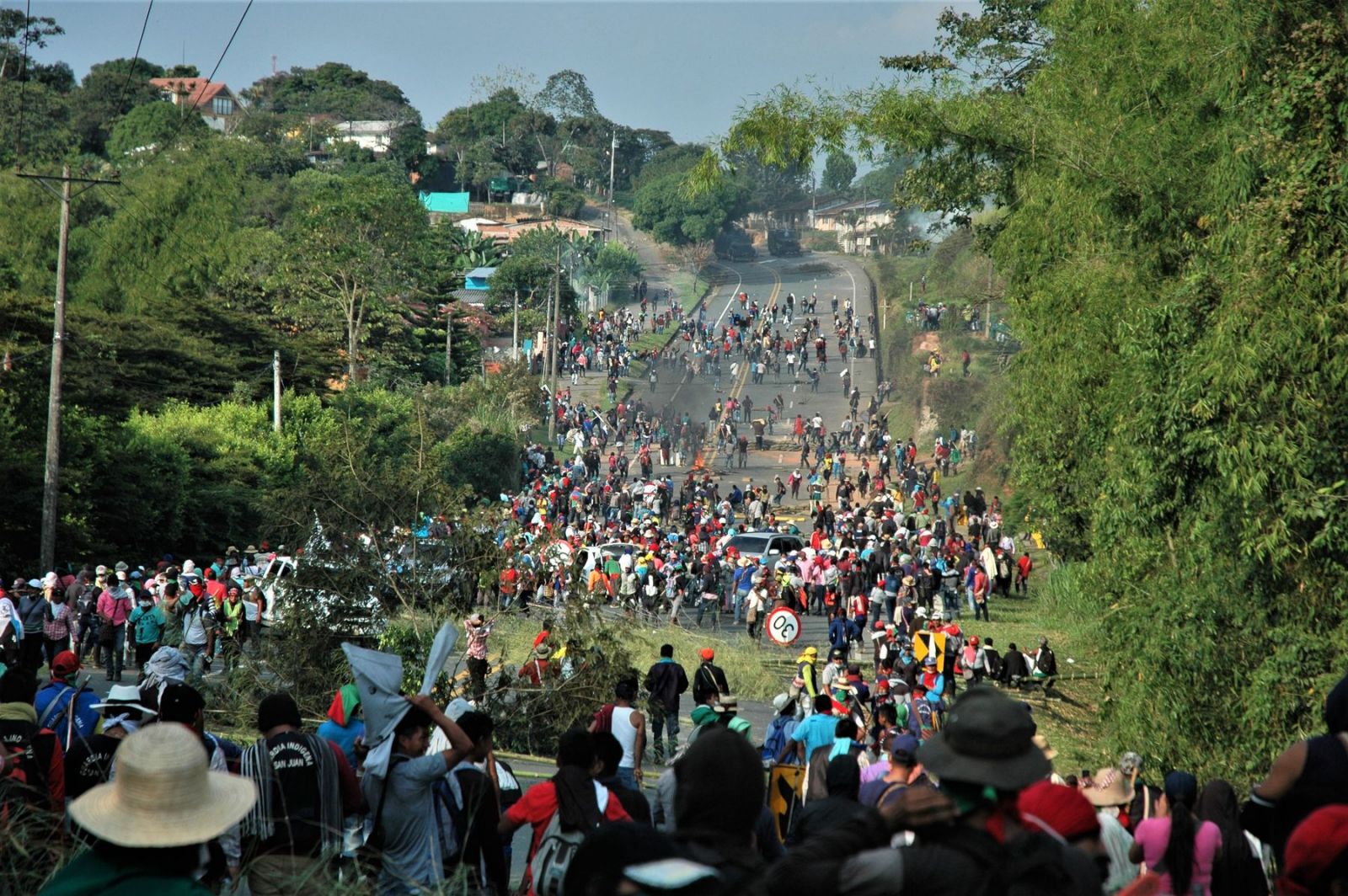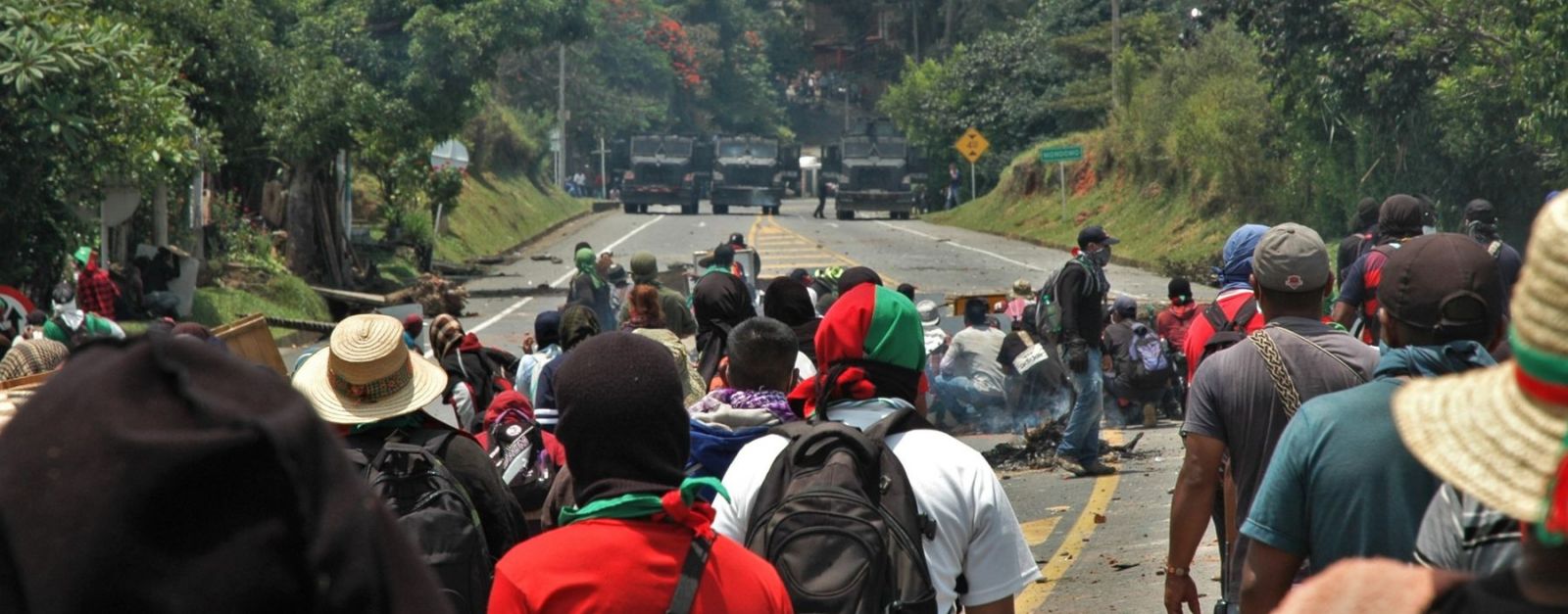
- On 10 March, the Ming for Life, Territory, Democracy, Justice and Peace (auzolan) began in the Colombian region of Cauca. Some 15,000 indigenous people have been mobilized and roads have been cut, as well as several associations of farmers, social and civil movements, among others. In clashes with the police, ten people have died and dozens have been wounded in a human chain. Andoni Barreña and Julen Larrañaga, members of Garabide, attended the EiTB headquarters in Bilbao and reported on what happened.
It's not the first time indigenous people have cut off the country's roads. Last time in 2016, during the presidency of Juan Manuel Santos, the main roads in southwestern Colombia were closed for 13 days. On that occasion they managed to reach a number of agreements with Santos, but these agreements have finally not been complied with and have been left to nothing.
Some 1,200 agreements signed with previous Governments and committed to the peace process have been fighting since 10 March in the Cauca region. The indigenous movement has tried on several occasions to negotiate with President Ivan Duque, but without success. During the election campaign, Duque took a stand against the peace process and assured that he would not respect the commitments made by the previous coalition government. With a right-wing speech, and being one of Uribe’s arms, he won the presidency of the Colombian State in June 2018. In its first 100 days of office, 118 social leaders and indigenous leaders have died.
After the failure of the attempts to negotiate with Ivan Duque, the indigenous movement gave the government an ultimatum: If Duque has started negotiations with a delegation that he should lead or if he has called for pain. It was and still is the presence of President Duque. Colombian Minister of the Interior, Nancy Patricia Gutiérrez, gave the news at the last moment to the thousands of indigenous people concentrated in Caldon: “For agenda problems it is impossible to come (Duque).” Minutes later they began to fill the road with fallen stones and trees.
Since then, the south-west corridor of Colombia has been closed to traffic. The rebels have blocked about 15 kilometres of the Pan-American road and have organized several camps in the vicinity of the roads. The communication that connects with Ecuador is cut and several cities are beginning to suffer the effects of the blockade: lack of fuel, increased indiscriminate speculation and lack of food.
The images of the endless rows of trucks are accompanied by scenes of war. The indigenous people are facing strong clashes with the Riot Police SMAD. The Police, in addition to using tear gas tanks and water tanks, has denounced that the federations of the indigenous CRIC movement and several of the gunmen wounded are also using bullets. Eight members of the Indigenous Guard and one student have died and three others have been seriously injured in an explosion recorded on 21 March. They were working on preparations to cut the passage to the Colombian port of Buenaventura, one of the most important in the Pacific, in an event that is still unknown.
The mood, however, remains high in the ming and the indigenous people are convinced that Duque will appear before before before. Moments of tranquillity happen by organizing improvised football matches and music sessions, among others. Those who are tired of so many days of struggle go home to recover the forces and meanwhile the strong relay takes the witness. They repeat over and over again that it is a struggle that affects the whole country. Because rights such as the defence of mother earth, life, democracy, justice and peace directly affect everyone.
Beyond the next future of Colombia there is much at stake in this struggle between two forces. If the indigenous people were able to negotiate and guarantee their rights, the seemingly solid foundations of the Colombian right would show cracks, but if the ming failed, the limits of the agent with more resistance and mobilization capacity would emerge.
In the meantime, negotiations with the Minister of the Interior on the president’s arrival in Brussels are continuing. The indigenous people demand the president to look at Venezuela to look at their home as well. Those who send “human help” abroad offer their own people the crudest face of repression.
If this ming were in Venezuela, a few kilometers away, how many newscasters would not open?





